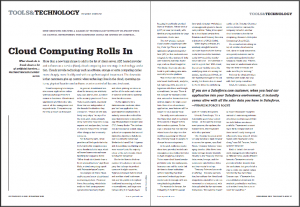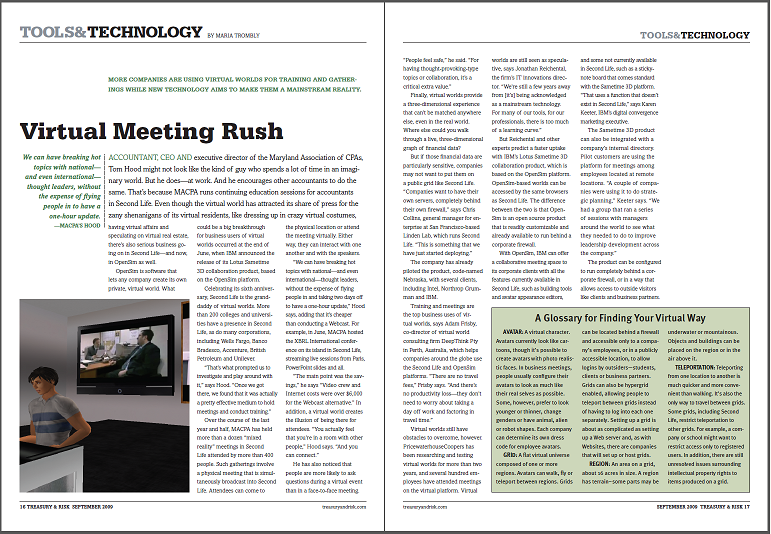New services deliver a range of technology without up-front capital investment. The downside could be giving up control.
More than a new buzz phrase to add to the list of client-server, ASP, hosted provider and software as a service (SaaS), cloud computing is a new stage in technology evolution. Clouds provide technology such as software, storage or extra computing cycles more cheaply, more flexibly and with no up-front capital investment. The downside is that customers give up control: when technology lives in the cloud, operating systems, physical location and software version control all become irrelevant.
Cloud computing lets companies access applications online without paying up-front for licenses or hardware. Cloud-based application providers also take care of all the management and upgrade tasks. Companies pay for only as much as they need.
Cloud-based treasury services are relatively new, says Mark Lobel, a partner in the security practice at PricewaterhouseCoopers, especially those independent of the financial institutions they connect to. “These are still relatively early days,” he says. For the most part, these products allow corporate treasurers to see reports and analyze data, but not to execute transactions or make other changes, due to security concerns.


